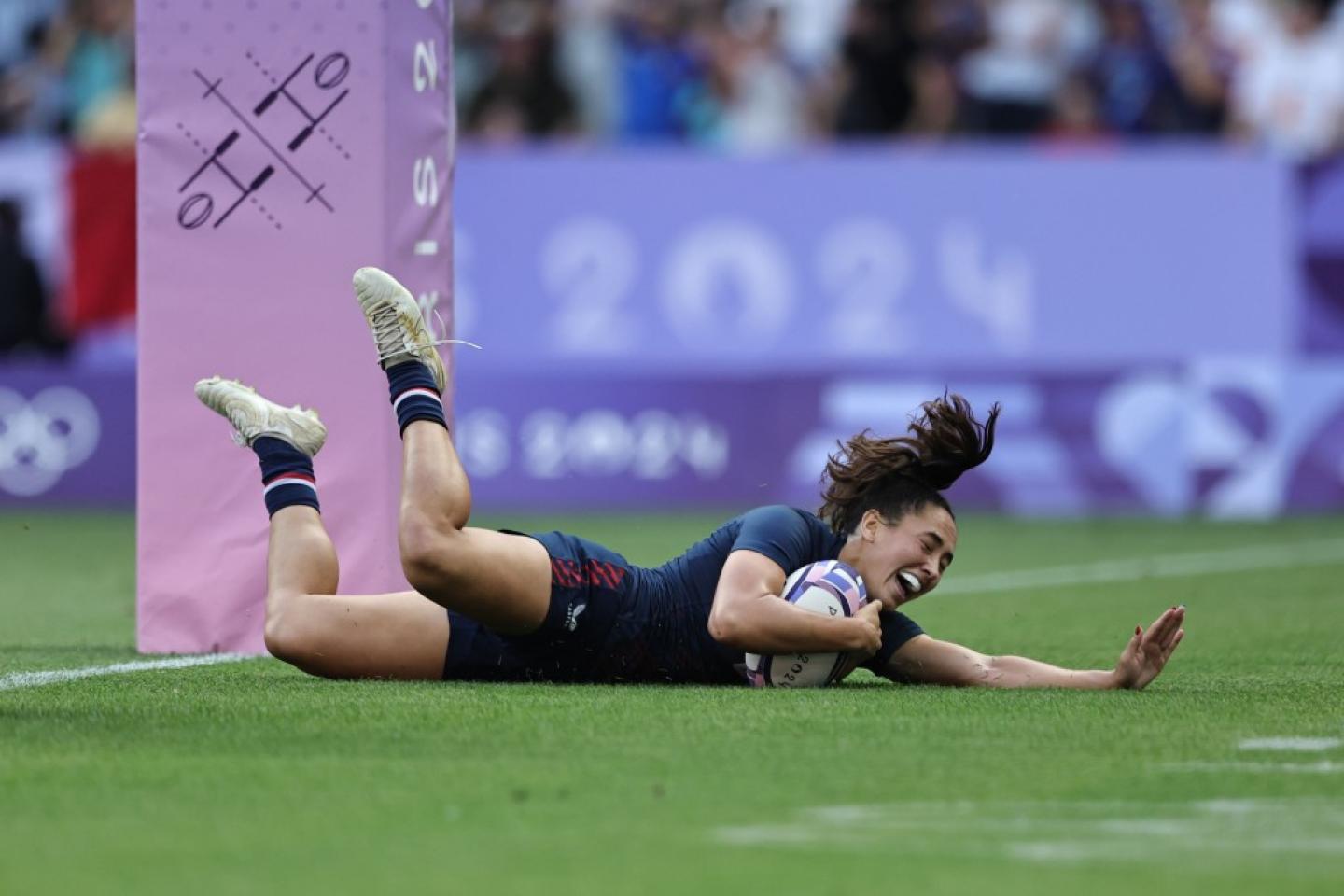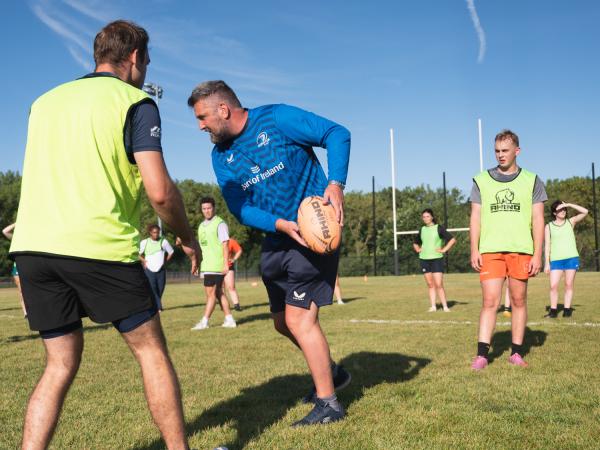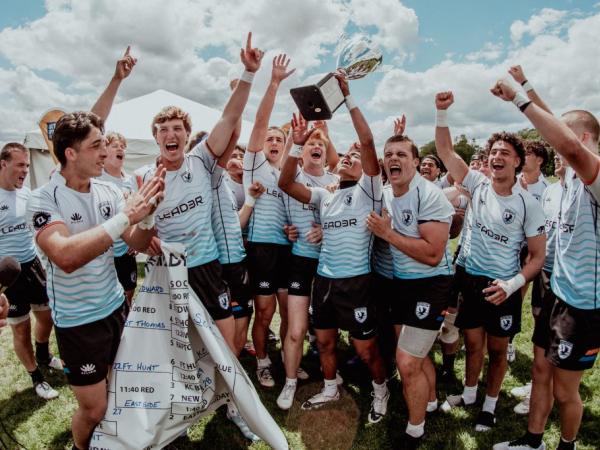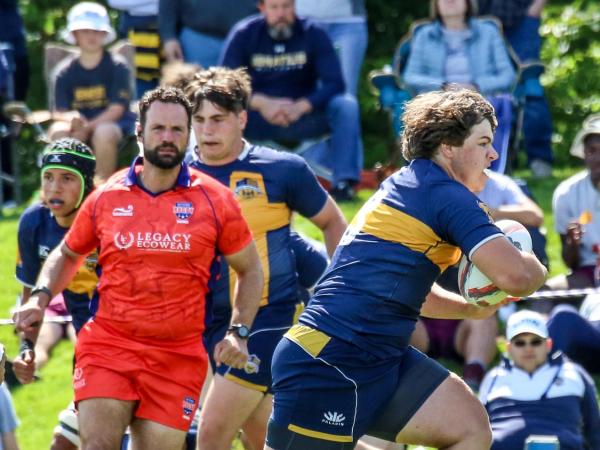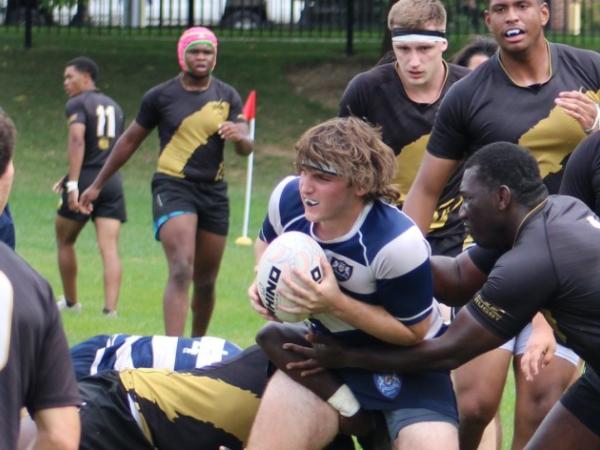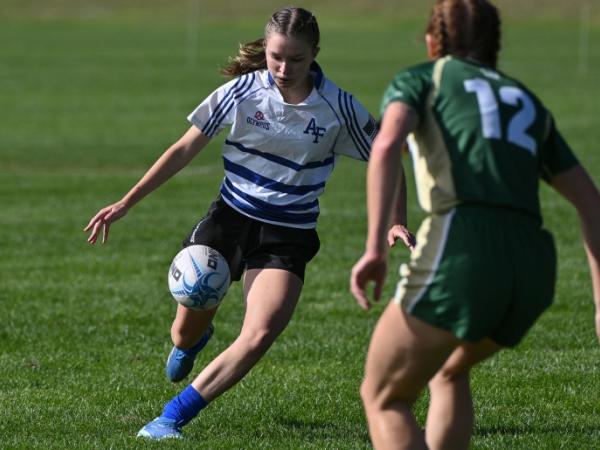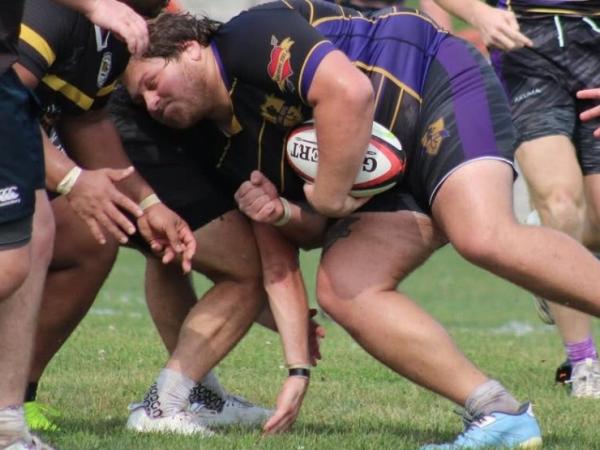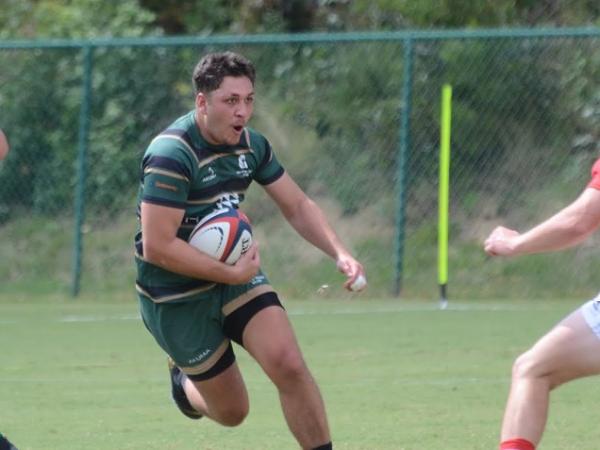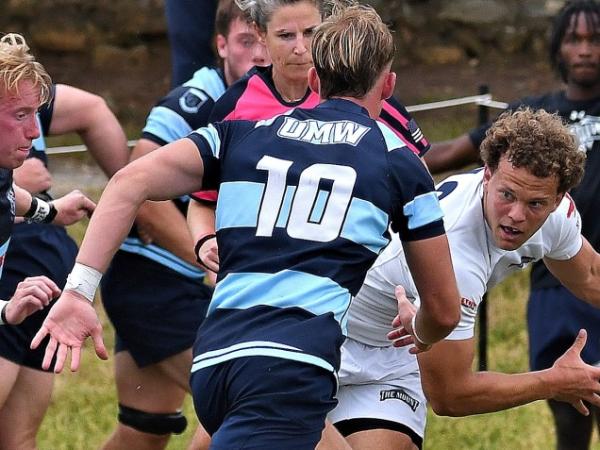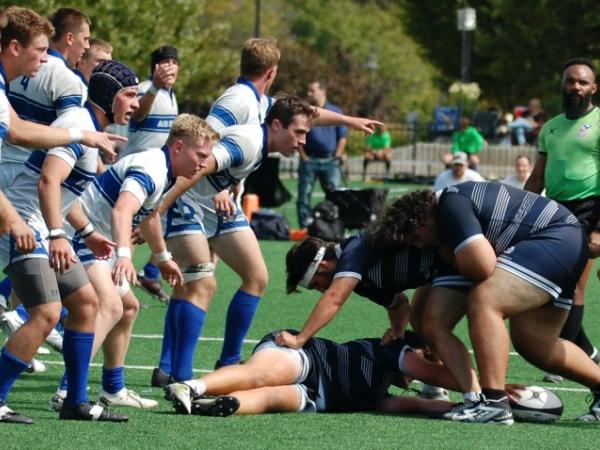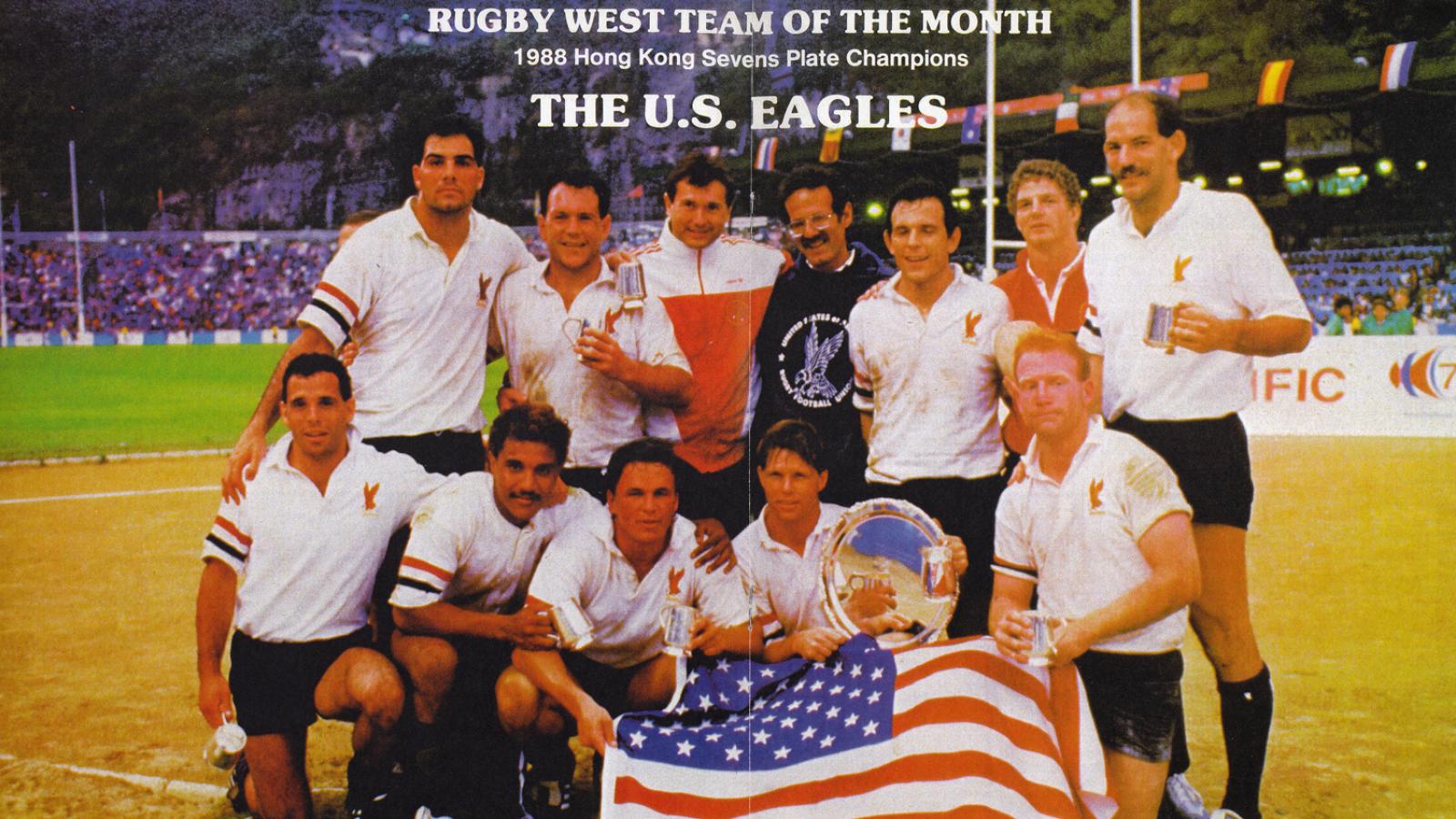Five days and 204 texts later (I counted), we’re starting a flag team. He’s gonna play flyhalf. He spent an hour one day working on left-footed punts with about a 50-percent success rate, he figures. He’s intrigued by the 50/22 rule. In trying to pick his favorite MLR team, he’s leaning toward Dallas and Miami, because they have cool colors. He wants to be able to dropkick off both feet, and is eagerly awaiting his first training session.
He wanted me to handicap all of the USA’s matchups for him before they kicked off. And to know why Fiji was so good. I explained that 7s is their national sport. His reply, verbatim; “All the kids wanna play rugby, but here they wanna play football and basketball.”
He gets it.
The Iron is Hot
In four years, imagine American rugby writing its own Hollywood story when the Olympic Games visit Tinseltown, one-upping DuPont and his supporting cast by winning double gold. If USA’s women and men stood atop the podium and the sporting world, how many more 13-year-olds would become rugby-obsessed?
The stage is set, literally. We just need to write the script, conduct a massive casting search to find our leading men and women, and execute the production flawlessly, all while essentially fundraising the budget off the backs of philanthropic boosters. In a few short years. Not easy. But we can do it.
The women are off to a screaming start. Seemingly minutes after stepping off the podium, the newly minted bronze medalists were accepting a check from business magnate and renowned women’s sports investor Michelle Kang, who pledged $4 million to the team through L.A. 2028.
Third in the world, they’re not far off as it is. Head coach Emilie Bydwell would be a spring chicken at 38-years-old heading into her second Olympic cycle, and there’s plenty of young firepower in the arsenal in the likes of Maher, Sedrick, Sammy Sullivan and more. The Kang gift will go a long way toward professionalizing the team and attracting talent to fill the massive void left by those like retiring captain Naya Tapper.
On the men’s side, the Eagles won just one match in Paris after narrowly escaping relegation from the World Series this spring. The to-do list appears longer, but not insurmountable.
Four years ago, France’s men failed to qualify for the Tokyo Olympics. Three years ago, they finished seventh in the World Series. Two years ago, they finished fourth. And this season, leading into Paris, they finished fifth. In the five years preceding the pandemic, the USA men’s average finish on the World Series was fifth, while France’s was 11th. In other words, France struggled at 7s for a long time, but climbed the mountain in very short order.
And we’ve nearly done it recently, too. The USA men were basement dwellers on the World Series, largely until Mike Friday took over in 2014. Fueled by the new coach, the Golden Eagles’ money and a golden generation of talent, (we literally had the two fastest men in world rugby in Carlin Isles and Perry Baker at the same time we had the world’s best restart kicker in Folau Niua and the baddest man on the Series in Danny Barrett) the USA went from 13th one season to sixth the next, and the season before COVID, we peaked at second in the world, right alongside the women.
Since COVID, it hasn’t been the same, but what has? The lesson is we’ve been near the sport’s peak before, we’re hosting 2028 on home soil, and the opportunity to win gold and enjoy our version of France’s ecstasy is very real.
This, to borrow legendary Cal head coach Jack Clark’s definition of mental toughness, is the “next, most important thing” for American rugby. Because the Olympics are three and five years before the Men’s and Women’s World Cups are scheduled to land on our shores, respectively. And because if your goal is to inspire America to fall in love with rugby, what makes a more compelling Hollywood script than winning double gold at the 2028 Olympics?
Not to mention 7s, compared to XVs, seems purpose-built for the TikTok generation and an era of deregulated sports betting. But that’s an entirely different essay.
America loves a winner. Wouldn’t giving them two in 2028 be the best thing that could possibly happen to the efforts for 2031 and 2033? If we’re going to wake the sleeping giant, 7s will be the smelling salt. Let’s lean in.
—Pat Clifton





